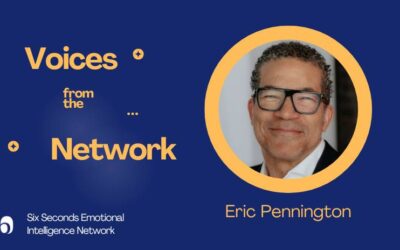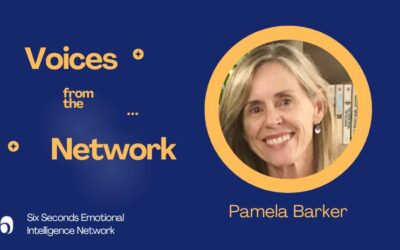4 Key Insights on Emotional Intelligence and Innovation
From the behavioral patterns of high performing teams to Marvel’s blockbuster success formula, here are 4 key takeaways from our deep dive into innovation
By Michael Miller – September 8th, 2019

1. Focus on the foundation first
What’s the most distinctive feature of innovative teams? Google embarked on a years long study to identify what drove its most innovative teams, and the key turned out to be a shared feeling of psychological safety, the belief that it is acceptable to voice your opinion and that you won’t be punished when you make a mistake. This makes sense: The brain’s primary goal is survival, and when it doesn’t feel safe, it reverts back to safe and familiar patterns – and literally shuts down higher level processes like creative, innovative thinking. Want practical tips to create a climate of safety where innovation can flourish? Check out these 5 action steps to cultivate a culture of psychological safety.
2. Break down normal boundaries
When researchers mapped people’s brains during innovation, they found that innovative thinking occurs when regions of the brain that normally ignore or exclude each other start working together. These findings have implications for fueling innovation in organizations big and small. Just like the brain specializes and works in silos for efficiency’s sake, so do organizations. But innovation requires new ways of thinking & connecting. Check out these 3 tips to apply the neuroscience of innovation in your organization.
3. Blend the novel with the familiar for optimal results
Innovation is about something new, but not something entirely new. Most organizations already sell some product or service, and they don’t want to start completely over. It’s about taking what exists and building on it or expanding it in creative new ways. No one has done this better than the Marvel Cinematic Universe. Check out Marvel’s 3-step model of innovation for a framework of how to innovate within an existing business model.
4. Pay attention to the process
Innovation isn’t just about having amazing ideas. We know this isn’t true because mediocre ideas get adopted while more brilliant ideas go unnoticed every day, at organizations all over the world. What’s the difference? Your idea’s ultimate success or failure depends on your ability to win the support and resources needed to turn that idea into reality – an ability that a trio of authors have dubbed as innovation capital. Like political capital, innovation capital is an intangible set of conditions – a mix of your reputation, network, sales ability, and more – that determines your capacity to implement your innovative ideas. We’ve identified the 7 emotional intelligence skills you can use to build this crucial capacity – check them out here and download our free workbook for innovators.
Add your expertise on Innovation…
and get ready for Connection!
As you read these Innovation pieces and practice applying the principles, be sure to share the results in the comments. We strongly believe at Six Seconds that every situation is unique – No Way is the Way in our Learning Philosophy – and your thoughts are invaluable to others as they try to grow and innovate themselves.
Our Q4 theme is Connection. Be on the lookout for the latest research about how to connect with yourself, others and a bigger purpose. If you’re not already signed up for our weekly newsletter, you can subscribe by filling out the form to the right.
Stay Up to Date!
What’s new in emotional intelligence?
In the Age of ChatGPT, What Should Teachers Focus On?
AI tools like ChatGPT are transforming education, prompting a shift from knowledge transfer to fostering skills like empathy, creativity, and critical thinking. This article emphasizes the role of Emotional Intelligence in inspiring engagement and purpose, helping educators adapt to the evolving demands of an AI-driven world.
What Should Schools Prepare Us For? Educating for a Future That Inspires and Uplifts
In Italy, only 5% of workers are engaged in their jobs—an economic crisis with deep roots in the education system. What needs to change?
From Enemy to Ally: How Eric Pennington Changed His Relationship with His Own Emotions – and Found His Life’s Purpose
How emotional intelligence helped Eric Pennington transform corporate life setbacks into strengths – and find purpose in both work and life.
Emotional Intelligence at Work: In the Era of AI, What Happens to Human Skills?
Who’s winning the artificial intelligence race: machines or people? Research finds AI investment leads to disinvestment in human skills
Fortifying the Mental Health of the Entire School Community with Emotional Intelligence
Wellbeing program at St. Peter’s Primary replenishes reserves post-COVID: ‘Truly life changing for many of our staff,’ school leaders say. Read the full case study here.
Helping Others Achieve Overall Well-being and Healthy Connections: How Emotional Intelligence Guided Pamela Barker’s Career Path Growth
Pamela Barker’s journey began with healing bodies, but it was her discovery of emotional intelligence that unlocked her true purpose: helping others achieve overall well-being and healthy connections. From her days as a physical therapist to becoming a passionate EQ coach, Pamela’s story is one of transformation, resilience, and the power of connection. Her experience shows that real change starts from within.
- Pursue Noble Goals in the Six Seconds Model of EQ - July 29, 2023
- Increase Empathy in the Six Seconds Model of EQ - July 26, 2023
- Exercise Optimism - July 24, 2023






